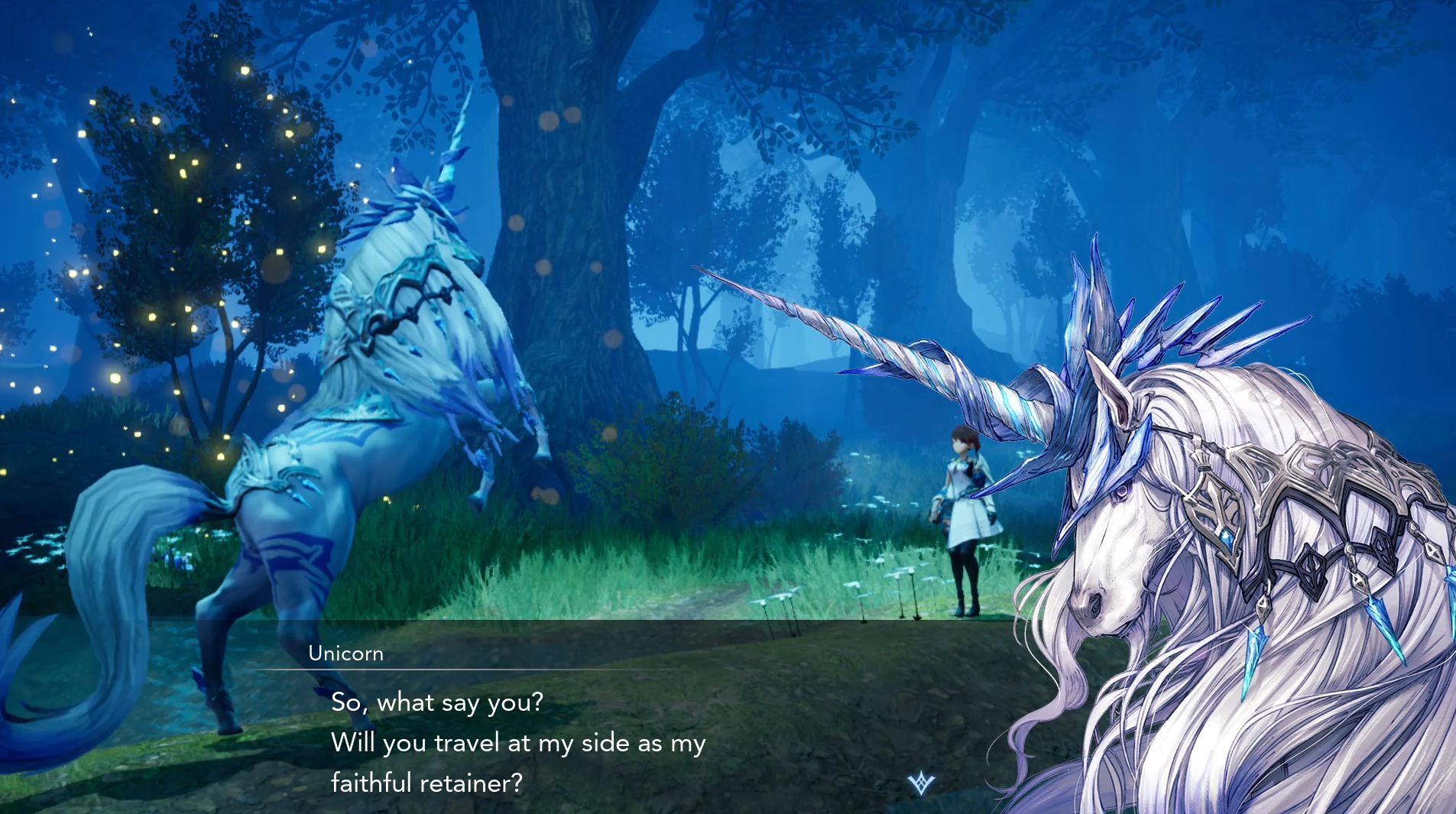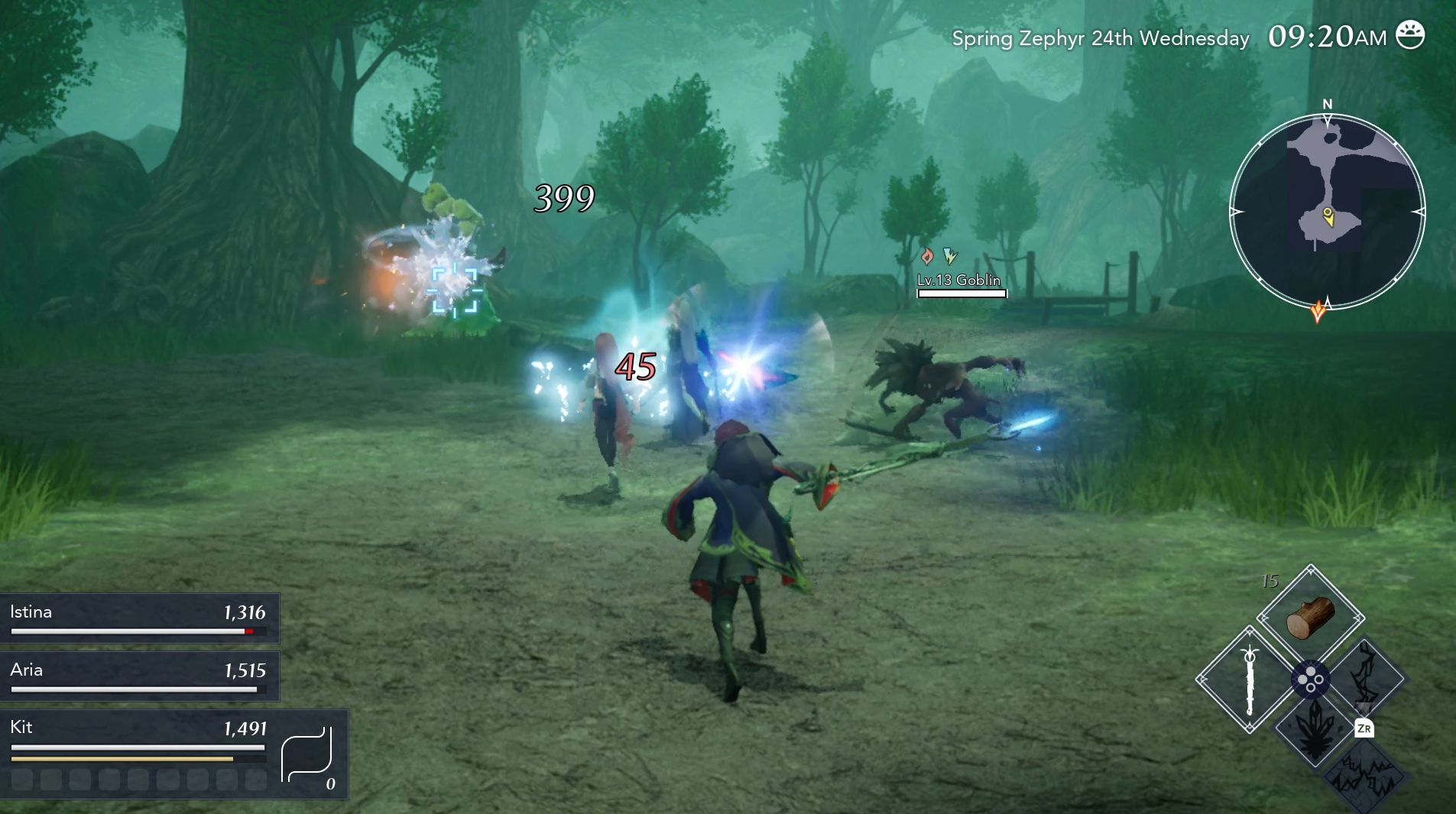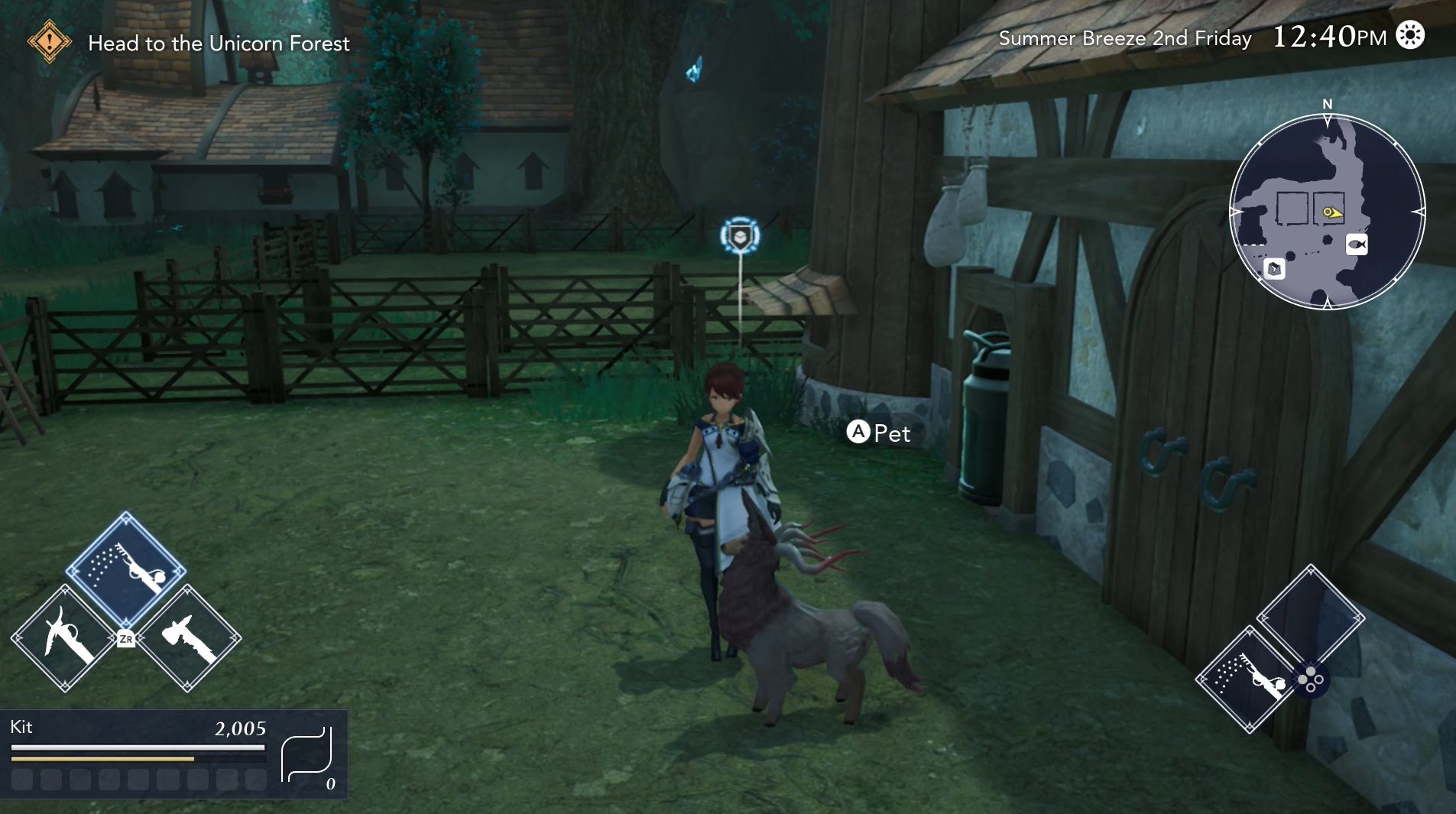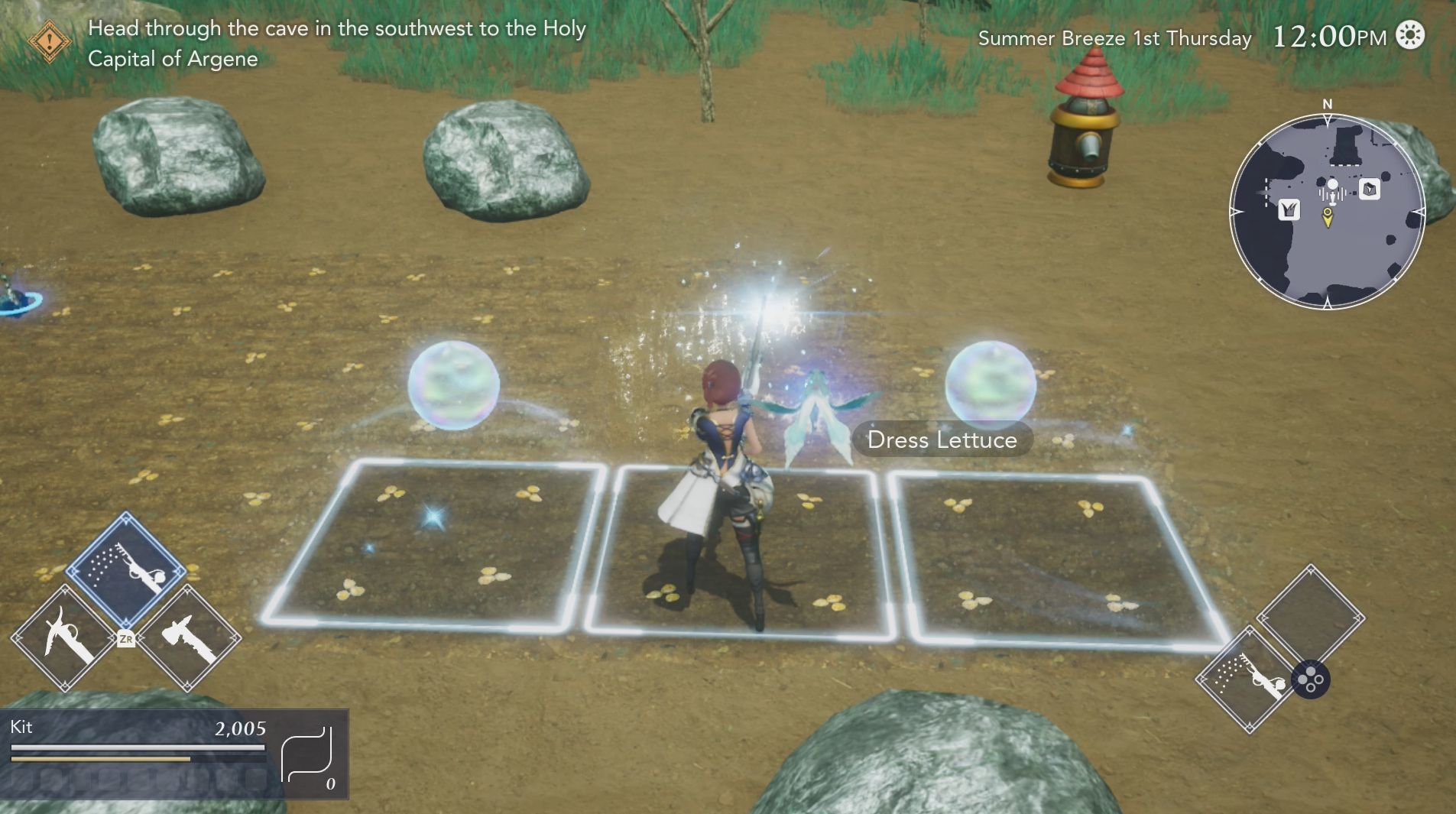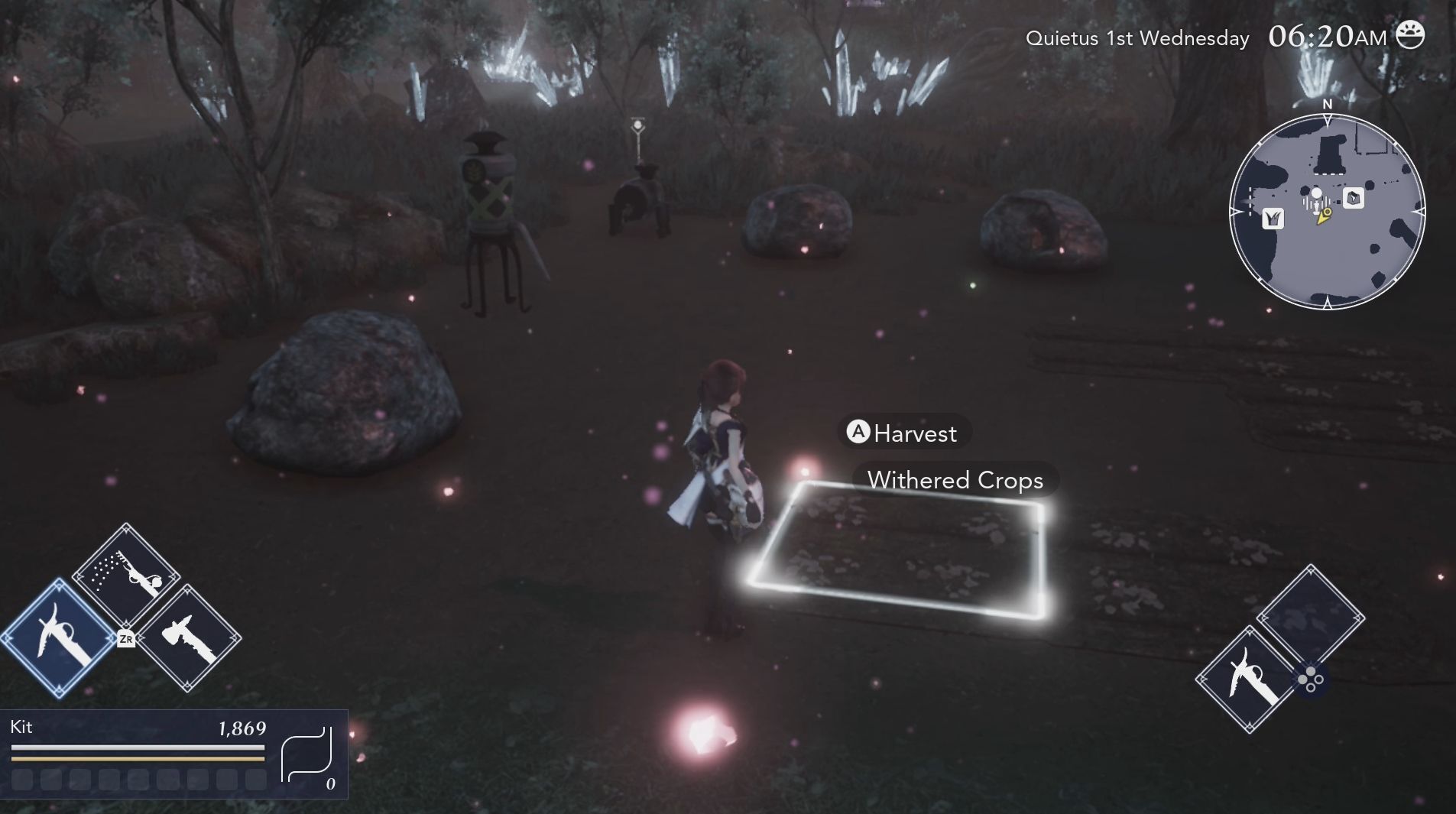You begin Harvestella as an amnesiac who’s found near Lethe Village after being outside during the Season of Death and, somehow, surviving. Unsure at what to do with you and most likely wanting to keep the medical miracle close to hand, the Mayor and local doctor give you a nearby farm. Peace, however, is short lived as you’re soon cohabiting with the time travelling Aria and start investigating the Sealights - crystal-like structures which affect the seasons. While I’ve currently only reached Chapter Four, Harvestella’s plot has already pulled me in with its sense of growing unease. Aria being an intelligent protagonist, whose status as a time traveller gives her a legitimate reason to hold back information, helps build this ominous tone. She’s keenly aware there’s something fundamentally wrong with this world and unafraid to voice this opinion, which ensures the characters are driving the plot rather than the opposite. That’s not to say Harvestella doesn’t include some wonderfully weird RPG staples - strange place names (my personal favourite being the Philosophical Hypocentre), people wearing knee-high heeled shoes and robot-like beings called Omens who also wear high-heels (the cobblers of this world must make a fortune). None of this, however, detracts from the feeling that this is a world unaware it’s on the precipice. Harvestella’s RPG-styled mechanics lie within this storyline, as you’re tasked with traversing dungeons and slaying monsters. While I’ve enjoyed the dungeons so far - especially the Coral Shine with its mournful choir soundtrack - there’s little in the way of puzzles and those I’ve encountered are quite simple. The focus is, instead, on navigating to the next floor and finding ever-so-slightly hidden chests. Where Harvesella does excel, however, is in its real-time combat and class - referred to as Jobs - system. There are 12 Jobs to unlock, each with its own skill tree, strengths and weaknesses. You can have up to three jobs on hand at once and can switch between them when the cooldown rate allows. The challenge then is not just in mastering the individual Jobs, but learning which ones work well together and using your party members to cover any left-over weaknesses. This results in fast-paced fights where you try to align your Job with the enemies weaknesses without dropping your guard. Harvestella’s approach to its farming simulator elements, meanwhile, has been one of streamlining - crops grow quickly, some not requiring watering, and there are a range of machines which process items for you. Caring for animals is notably simpler when compared to other farming simulators too; you only have to ensure they’re fed and petted, with their products being automatically collected for you. Despite this, farming never feels aimless in part thanks to the Fairy Orders - a wide collection of achievements which gradually unlock upgrades from stamina increases to new machines - giving you a goal to strive towards. These design decisions work in Harvestella’s favour, preventing farmwork from becoming a chore dragging you away from the story and, instead, allowing it to be as intensive as you desire. On the surface, it may seem like farming has been sidelined in favour of Harvestella’s RPG elements, but, in fact, one cannot work without the other. Farming earns the money needed for upgrading weapons and ingredients for health-restoring meals, while defeating monsters provides you with crafting materials or seeds. The result is an enjoyable balance where you never feel chained to one specific activity in the game, instead having the freedom to switch between them at will. What holds the different aspects of Harvestella together, however, is time management. Careful time management is key in any farming simulator - you can’t catch every fish, destroy all the stones messing up your field and forage every item in one day after all - and it’s not been abandoned in Harvestella.The flow of time is a constant force, either ticking away as you water crops or being spent in specific amounts when crafting. Even walking on the overworld map costs you ten minutes per step, so, if you’re venturing far, this travel time needs to be factored into your day. You can unlock faster modes of travel, but, even then, it’s unlikely you’ll finish a dungeon in one day. Thankfully Harvesella prevents dungeon exploration from becoming tedious through waypoints placed at the beginning of every floor and allowing you to create shortcuts. Yet, here you confront time once again, because building a shortcut costs an hour. This creates the dilemma of either building the shortcut and returning tomorrow or pushing on to the end of the floor, but risk passing out at midnight. Doing so can leave you less time on the following day and, worse of all, a medical bill. Time is the connective tissue of Harvestella and it all leads up to the Season of Death. Quietus, also known as the Season of Death, occurs in-between every season: during this time all your crops will die, the world’s colours fade and, technically, everyone is meant to say in doors. The game helpfully includes a countdown for Quietus - preventing you from accidentally planting new crops before a season ends. The dungeon hidden within the well of your farm is also only accessible during Quietus. Having currently only experienced Quietus once, I’m unsure whether you can explore beyond the boundaries of your farm when it falls. What I can say is the well dungeon is a fun combat challenge, especially since the monsters within drop useful items. Since certain floors can be teleported to after being reached for the first time, you also feel encouraged to return when the next Quietus arrives. Though Harvestella has ignored some aspects of the farming simulator genre, it is a sacrifice that benefits the RPG adventure and results in you being able to smoothly move between the game’s two halves. Fishing has been the only disappointing feature I’ve experienced so far, because of how it just consists of tossing your line into the water and slowly waiting for a fish to bite. Aside from this, Harvestella, with its enjoyable combat and darker tone, already feels like a hidden gem perfect for fans of its interwoven genres.
